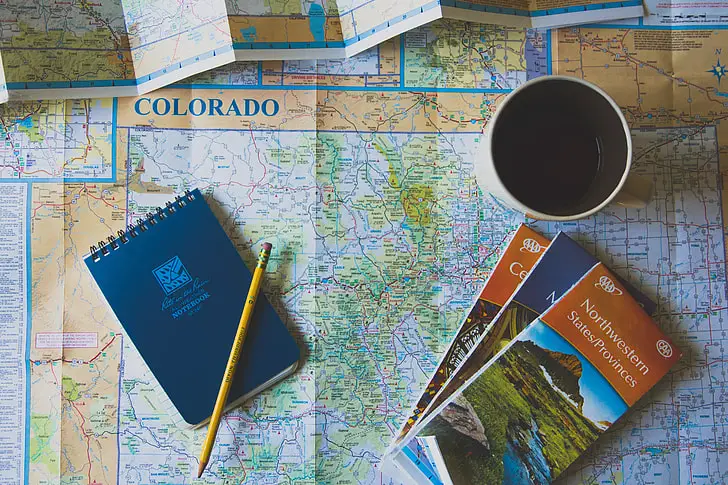1. Constantly Switching Locations

Hopping from city to city or campsite to campsite might sound exciting, but it comes with hidden energy costs. Packing, unpacking, and finding a new place to stay takes mental and physical energy that builds up quickly. Even if the scenery changes, your body and mind are still catching up with the constant movement. Over time, this can leave you feeling drained rather than invigorated.
The thrill of novelty often masks the fatigue it creates. Every new location requires planning, navigating, and decision-making, all of which burn cognitive energy. This repeated cycle of adjustment can make even a short trip feel exhausting. Ironically, the lifestyle meant to feel liberating ends up demanding a lot more from your body and mind.
2. Irregular Sleep Patterns

Nomadic life often means irregular schedules, whether from travel, work, or socializing. Sleeping at different times each night confuses your body’s natural circadian rhythm, leading to fatigue and difficulty focusing. Skipping proper rest to catch flights or buses compounds the problem. Your brain relies on consistent sleep to process emotions and recover physically, and without it, energy levels plummet.
Even small inconsistencies in sleep can impact mood and immunity. Staying up late in one city and waking early in another can create a cumulative sleep debt. Over time, this makes you more susceptible to illness and reduces mental clarity. Your adventurous spirit may push you to go without sleep, but your body pays the price.
3. Overpacking and Carrying Too Much

Carrying a heavy backpack or too many bags might seem minor, but it drains physical energy rapidly. Constantly lifting and adjusting weight causes muscle fatigue and strains your joints. It can even affect your posture over time, making daily movement more taxing. What feels like preparation is often unnecessary overcomplication.
Lightening your load isn’t just about convenience; it’s about sustainability. Each extra kilogram adds a mental and physical burden. The energy you spend on lugging belongings could instead go toward exploring or resting. Minimalism isn’t just a trend—it’s a practical energy-saving habit that many nomads overlook.
4. Skipping Meals or Eating On the Go

Life on the move can make regular meals difficult, leading to skipped meals or fast-food reliance. Your body burns more energy when it doesn’t get steady nutrition. Quick snacks might fill you temporarily but don’t provide the sustained fuel needed for travel. Over time, inconsistent eating patterns sap vitality and weaken focus.
Eating irregularly also affects metabolism and mood. Hunger spikes lead to irritability and slower cognitive processing, which makes navigating new environments harder. Cooking or preparing simple meals can restore energy and provide structure to an otherwise chaotic schedule. Nomads often underestimate how much energy proper nutrition really saves.
5. Ignoring Hydration

Traveling often means long hours in transit, changes in climate, and easy access to sugary drinks instead of water. Dehydration can sneak up, causing fatigue, headaches, and decreased alertness. Even mild dehydration reduces cognitive performance and physical endurance. Many nomads overlook this because water feels less exciting than coffee or energy drinks.
Hydration isn’t just about drinking water; it’s about sustaining energy for movement and concentration. Being in unfamiliar climates can increase fluid loss without you realizing it. Carrying a refillable bottle and drinking regularly is a simple energy-preserving habit. Over time, this small act can dramatically reduce mid-day crashes.
6. Relying on Public Transportation Without Planning

Relying solely on buses, trains, or shared rides can drain energy when schedules are tight or unreliable. Waiting in lines, missing connections, or navigating unfamiliar routes adds stress and fatigue. Every delay requires mental recalibration, which uses cognitive resources you could conserve. The unpredictability of public transit can make you feel constantly “on edge.”
Even small inefficiencies in travel compound over days or weeks. Lack of control over timing increases anxiety, reducing overall energy. Planning routes and timing, or even walking part of the way, can preserve both mental and physical stamina. Efficient travel habits may not sound glamorous, but they prevent unnecessary energy loss.
7. Excessive Screen Time

Digital nomads are often glued to laptops and phones for work, social media, and navigation. Too much screen exposure, especially in low-light conditions, strains the eyes and disrupts sleep patterns. It also keeps your mind in a high-alert state, making it hard to relax. This constant stimulation drains energy in ways that aren’t always obvious.
Scrolling or working late can interfere with your natural circadian rhythm. Blue light exposure in the evenings suppresses melatonin, making it harder to fall asleep. Multitasking across apps and devices also reduces focus and mental stamina. Balancing screen time with offline activity helps recharge both body and mind.
8. Living Out of a Suitcase

Nomads often have everything they own in one or two bags, which can make life chaotic. Digging through a suitcase or backpack multiple times a day creates stress and decision fatigue. A lack of organization slows you down and adds mental clutter. Over time, the simple act of finding things becomes a surprisingly energy-draining task.
Living out of a suitcase also limits your ability to create a comfortable, stable environment. Small comforts—like clean sheets, organized clothing, or a dedicated workspace—boost energy. Nomads who invest in minimal organization save both time and mental bandwidth. Feeling settled, even temporarily, significantly improves overall energy.
9. Social Overcommitment

Meeting new people and attending events is exciting but can be exhausting if overdone. Constant socializing requires energy for conversation, interpretation, and emotional regulation. Traveling alone or in groups can amplify this energy drain if boundaries aren’t set. Even introverts may find the social calendar of a nomadic lifestyle overwhelming.
Overcommitting socially also leaves less time for rest and personal reflection. Every interaction, while valuable, adds to cognitive load and fatigue. Learning to say no or pacing social engagements preserves energy for essential activities. Nomads often assume social opportunities always equal positive experiences, but energy conservation matters too.
10. Neglecting Exercise

While nomads often walk more than average, structured exercise is sometimes neglected. Lack of consistent movement targeting strength, flexibility, and endurance can lead to fatigue and poor posture. Muscle imbalances develop from repetitive travel-related movement, adding physical strain. Simple routines that fit into travel schedules can make a huge difference in energy levels.
Exercise also boosts mood and cognitive function, which are essential for a lifestyle full of unpredictability. Even short daily routines preserve stamina and reduce mental fatigue. Nomads often assume constant walking is enough, but the body needs varied activity to stay energized. Small, consistent workouts prevent long-term depletion.
11. Overplanning Every Detail

Planning is necessary for travel, but overplanning creates stress rather than saving energy. Hyper-focusing on itineraries, budgets, and contingencies occupies mental energy that could be spent enjoying experiences. Unplanned deviations then feel more stressful than they need to be. The constant mental load from excessive organization can outweigh its benefits.
Overplanning also limits spontaneity, which ironically is part of what keeps travel exciting. Accepting some unpredictability reduces anxiety and preserves energy. Flexibility allows for mental breaks and creative problem-solving on the go. The key is balance—enough planning to be prepared, but not so much that it drains you.
12. Neglecting Personal Downtime

Nomads often feel pressure to “maximize experiences,” skipping rest to see more sights or attend more events. Without intentional downtime, the body and mind can’t recover, leading to chronic fatigue. Mental exhaustion reduces enjoyment and decision-making capacity. Ironically, pushing too hard can make even the most scenic experiences feel draining.
Scheduling downtime is a form of energy preservation. Short breaks, meditation, or even quiet moments in nature restore cognitive resources. Treating rest as essential, not optional, ensures you have energy to enjoy the nomadic lifestyle fully. Over time, these small pauses can transform how sustainable and enjoyable your travels are.
This post 12 Nomadic Lifestyle Habits That Drain Energy Instead of Saving It was first published on Greenhouse Black.
